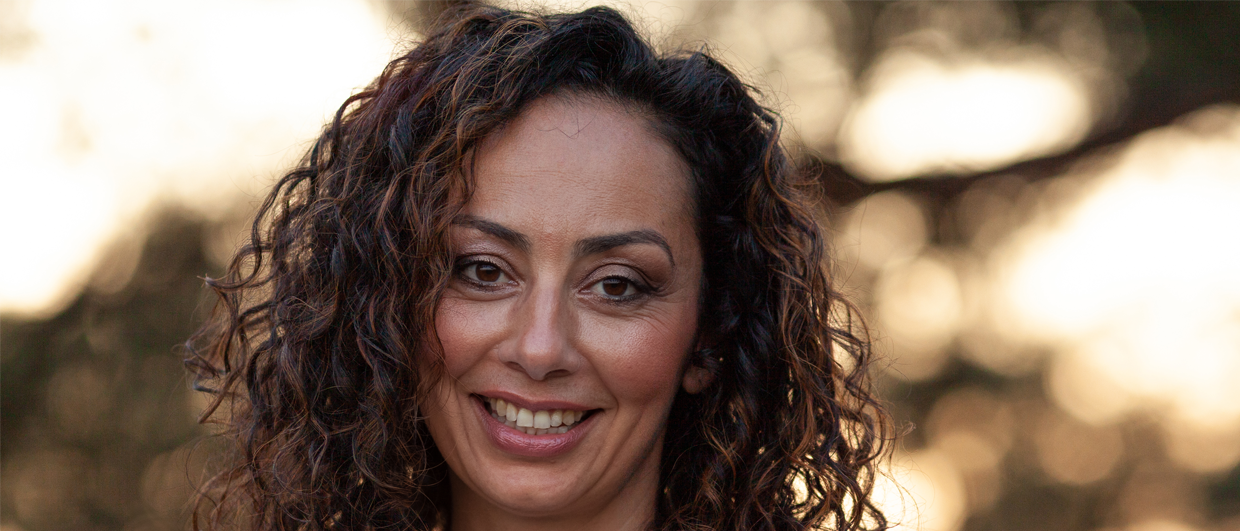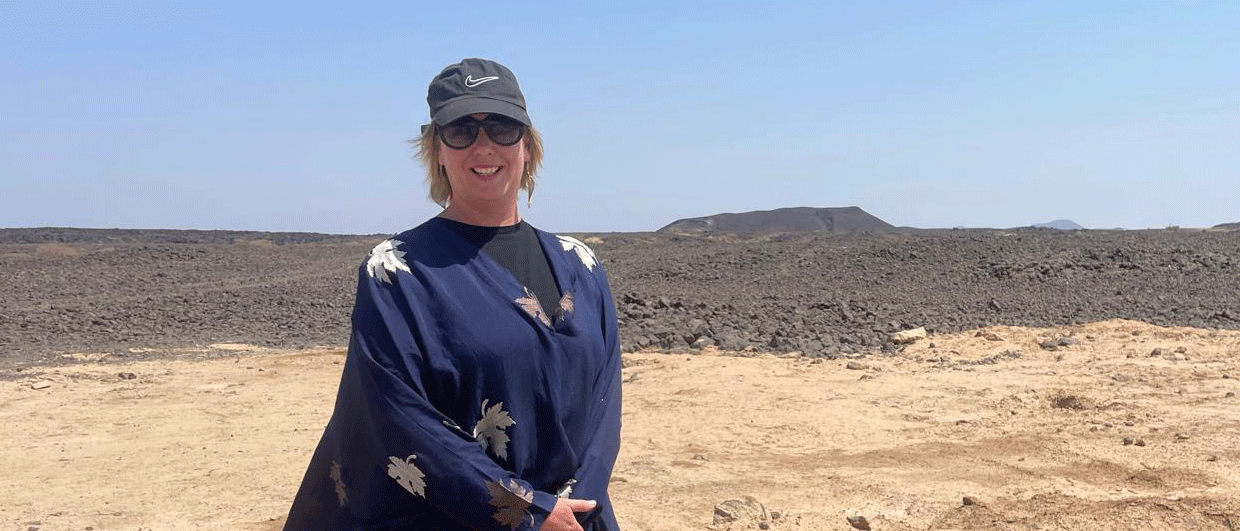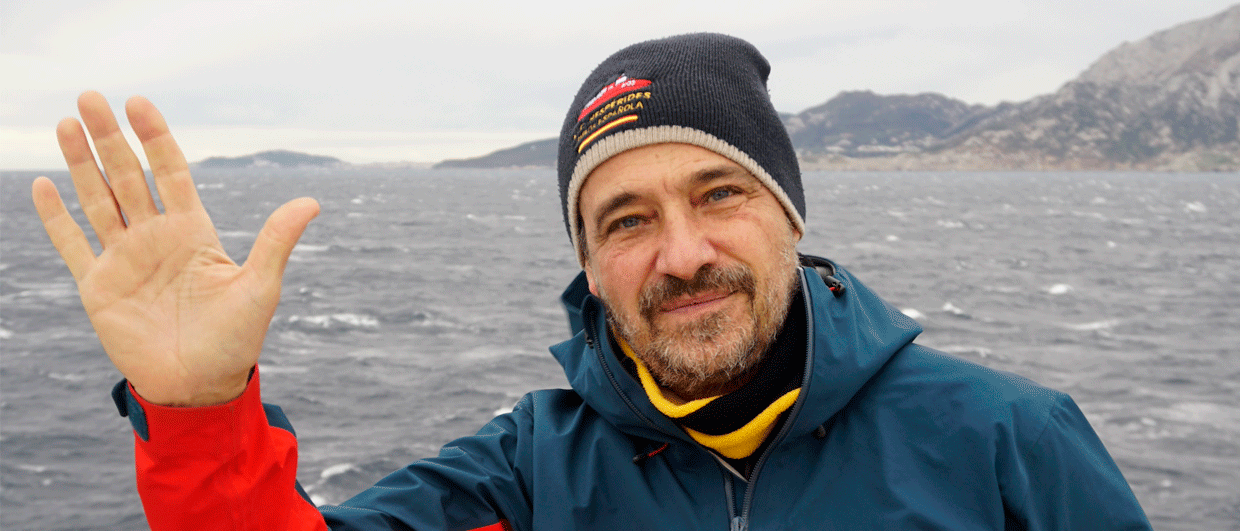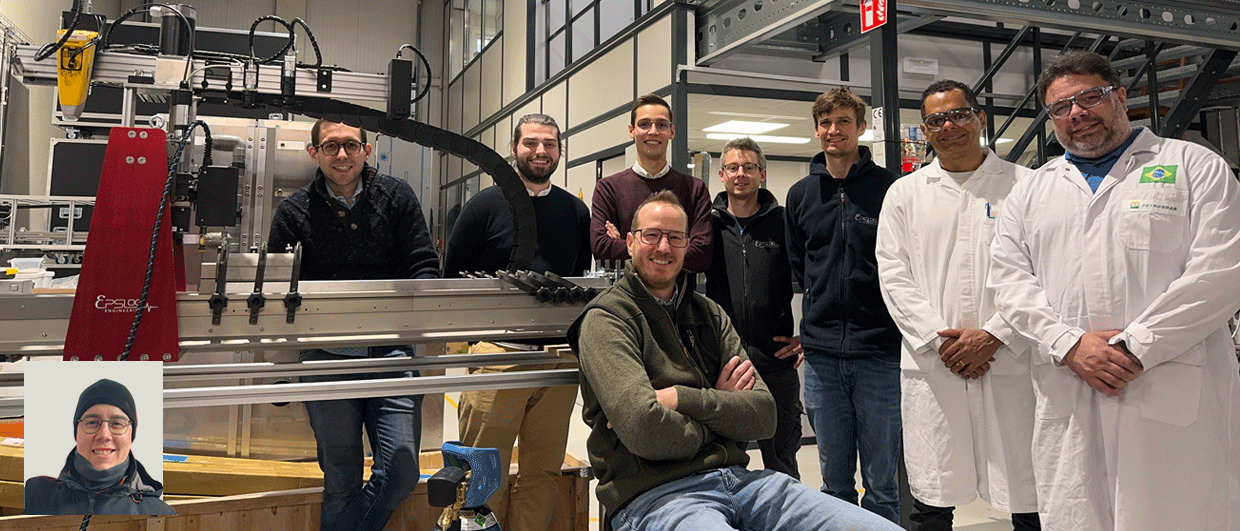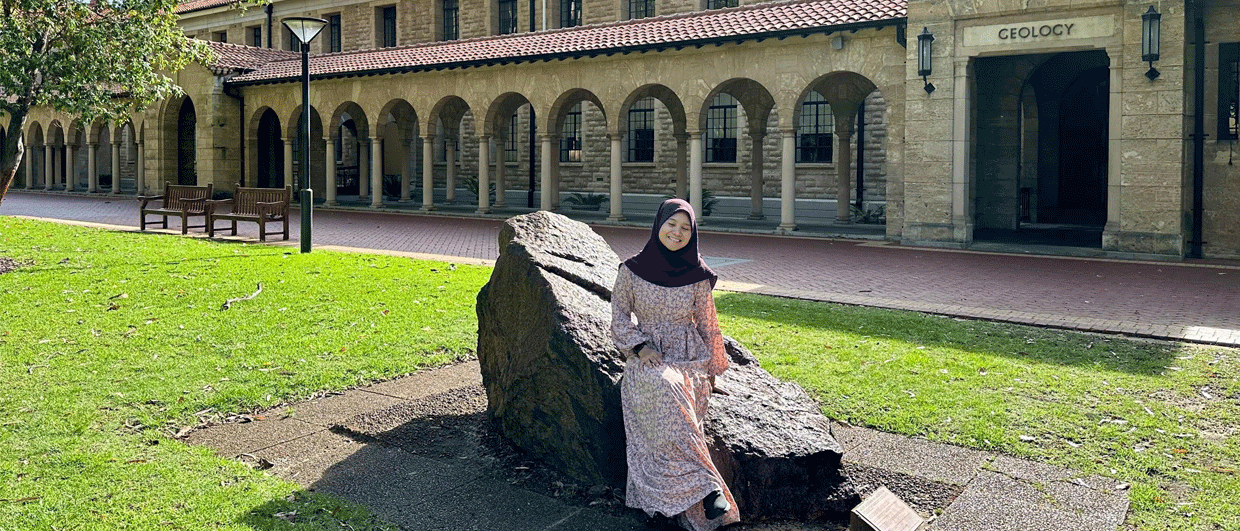“My parents approached my upbringing in different ways”, says Hayet when we met up on Teams to do the first part of this interview. “My father, an accountant, is curious and likes to look beyond what is thought to be the norm. My mum, a teacher of French, comes from a more traditional background. That’s why my upbringing is characterised as a collision between traditional and progressive views. Despite these differences, both of my parents pushed me to make the most of what life has to offer, by helping me to discover my passion while embracing the inevitable change happening all around us.”
And that is really obvious when learning about Hayet’s career.
“At first, I wanted to become an artist, but my parents really played the game well to get me into something that had some better career prospects. When I was due to be assessed for going to art school, the people asked for my portfolio of artwork. But I didn’t have any, nobody had made me aware of that!” she laughs.
“My parents then told me to choose another university course and work on my artwork portfolio in the meantime, but as expected that second part of the story never happened!” Hayet continues. “Parenting is the most difficult job out there and thinking back, my parents were very smart in the way they guided me, indirectly, to a field that I am so passionate about. I hope to have that same wisdom when encountering similar challenges with my children.”
That second choice was indeed, as you can guess, geology. “I loved drawing and fossils, and decided to combine the two”, explains Hayet. Another aspect she appreciated a lot about geology are the opportunities to come up with creative, yet scientifically reasonable, solutions based on what we have learned from the past and apply them to the present, as well as the uncertainty that came with so many subjects.
Towards the end of her studies in the Algerian Petroleum Institute (IAP), Hayet became aware that an American oil company (Burlington Resources) with operations in Algeria offered one scholarship per year for students to complete another master’s degree at the University of Kansas, USA.
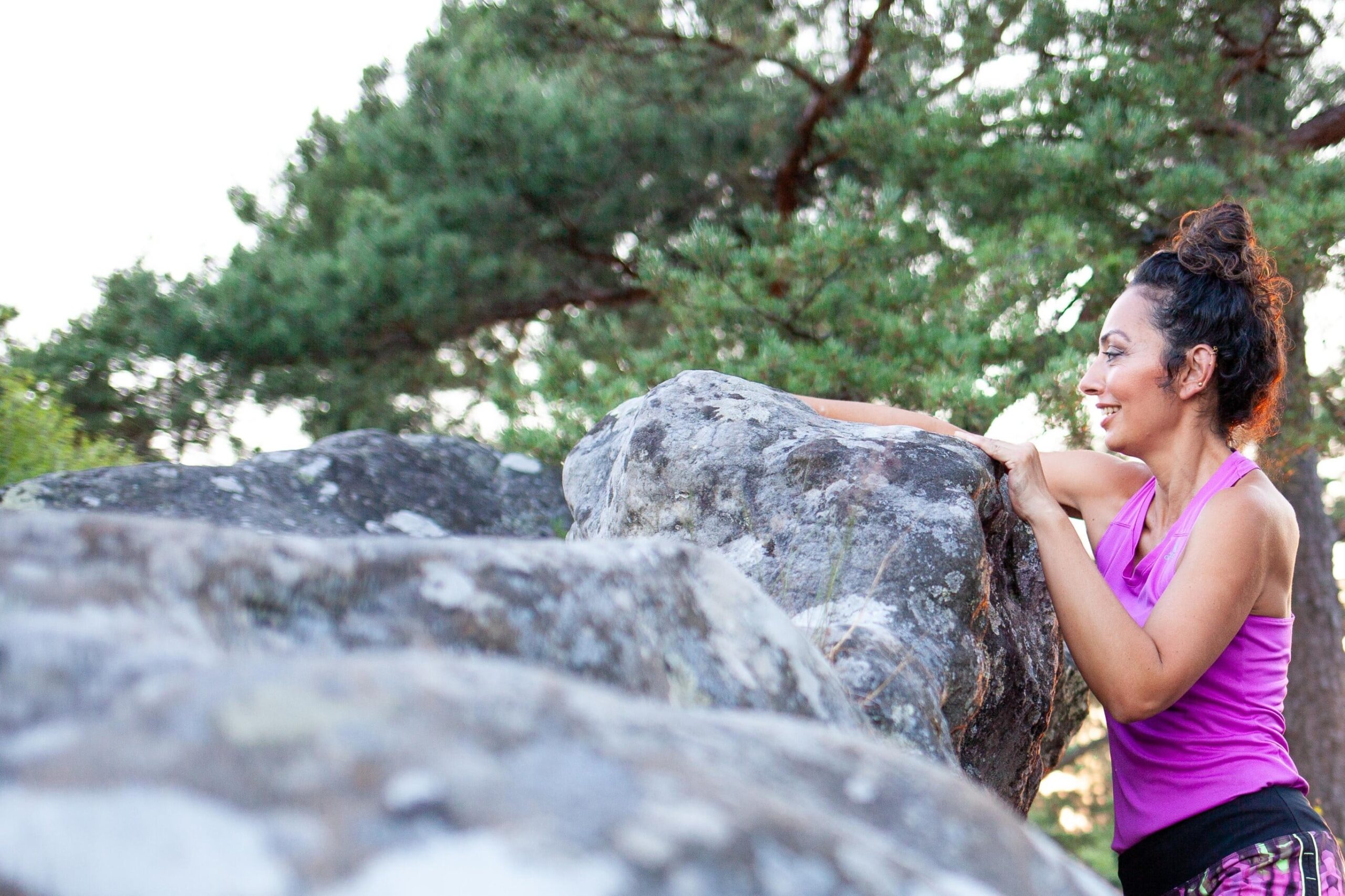
Failure made me work even harder.
“I came in second during my first attempt, and was told that I needed to improve my English to beat the competition”, Hayet says. “So, I took a year of English classes, again with full support of my parents, and received the scholarship on my second attempt! Only then I looked up Kansas on a map; I did not have any idea!”, she laughs.
Being hired
The way Hayet was subsequently recruited into her first job after university in the US was another life-changing experience, an experience that still resonates with her today in the way she approaches her career as a manager and recruiting new talent.
“I was in the US on a student visa and gave little thought about pursuing a career there. Most companies required a work permit to even apply for a position”, Hayet starts. “The lack of a work permit didn’t stop me from helping others in their job search though.”
So, during one of the recruitment events at the University of Kansas, Hayet volunteered and guided students through their recruitment and interview process without the intention of participating. “I just wanted to help students navigate the rooms and assist the recruiters where needed”, she recalls.
You can teach people skills, but you can’t change people’s personalities.
However, near the end of the day, Hayet was invited by Chesapeake Energy to sit down for an interview. Why? “Because recruiters watched how I interacted with everyone else around me, and concluded that I was the type of candidate they needed: someone who could work with others, someone who knew when to stop and listen, and then give feedback when needed”, she says.
“The official interview was short. They went through my resume, talked about my thesis and invited me to visit the Chesapeake’s Oklahoma City Campus a couple weeks later. After that, everything was arranged to make sure I could start.
“This was an unplanned change that offered me a great opportunity, so I embraced it! I moved to a new city, where I knew no one, but it became the home where my husband and I first lived together and where our children were born.”
“How I was recruited to work in the US may seem unorthodox, but I recommend companies to embrace the human approach to recruitment”, says Hayet. “It’s not only about your CV and the university you went to; it is more about your attitude and your willingness to work with others and learn. That’s what the recruiters recognised in me, and I will forever be grateful for that”, she adds.
“Much more than in the US, recruitment is too much of a box-ticking exercise in other countries, without much flexibility to get to know people’s personality and drive, a very important aspect to consider before bringing a new person to the team”, she emphasises.
“People can perform very well at school, but subsequently lose momentum when entering their first job. The other way round is not uncommon either, so you never really know”, Hayet concludes. “Therefore, I really think that recruitment should not be too protocolized.”
Chesapeake
Hayet stayed with Chesapeake for 13 years. “Let’s not sugarcoat it”, she says, “work and career in the US form a bigger part of one’s life than what most people in Europe and other parts of the world may find comfortable. People are on call all the time.” Yet, she never felt she was forced to work hard. “The can-do mentality and the ability to make things happen formed such a motivation for me”, she says. “The mandate was: think outside the box, look for innovative solutions. I liked that.”

“In return for their commitment and dedication, Chesapeake was known to offer many perks to its employees, such as the latest technology at work and amazing field trips. Inside the campus, as they called it, Chesapeake provided healthy restaurants, a 5-floor gym, a daycare, and a medical center. Even IVF treatments and adoption services were sponsored by the company”, Hayet adds.
People in other countries tend to call us workaholics; I simply loved the speed and how much learning comes with that.
“The downside of working in corporate America is the fact that your job can be axed at any time”, continues Hayet. “In that sense, it is a challenge to build up a stable life. Every year there were redundancy rounds, and after surviving so many it was my turn after 13 years”, she continues. “It was hard; fear of the future and not knowing what to do next were real emotions.”
“In that regard, some Europeans have no idea how comfortable their lives are when it comes to having a social safety net”, Hayet concludes. “In the US, there is nothing to fall back to when you’re made redundant. Imagine such a situation in France, where I now live. The contrast is truly staggering.” Yet, even though the American way of working is not ideal, Hayet continues to look back at her US years with satisfaction: “Work hard, play hard, it just suited me!”
The oil patch
During her time at Chesapeake, Hayet saw the shale boom unfolding in front of her eyes. “The first thing that springs to my mind is how close the link is between the shale industry and commodity prices”, she says. “One day we were mainly drilling for oil, only to sell the acreage a little later to focus on gas.”
Technological developments also played an important role in further reducing costs and increasing drilling rates. “At the beginning of my career, we drilled our horizontal wells using Microsoft Excel”, Hayet explains with a smile. “Soon after, companies started to develop software for that, but we really only had the basics at the start. Drilling rates, length of the laterals, and the number of wells being completed from one pad; everything was developing so fast”, she says.
“The sweet spots in shale gas and oil have now been drilled”, Hayet continues. At the same time, that does not always mean that working in the more marginal areas is necessarily less valuable. “We found that by drilling the slightly less organic-rich intervals around the sweet spots, where the formations are more brittle, drilling was easier and faster, resulting in costs per well coming down.”
Women in geoscience
“When I went to university in Algeria, it was not very common to see fathers pushing their daughters to embark on a study such as geology, including the many field trips it entailed”, Hayet says, “but my parents were always there to support me in having made the right choice.”
A lot has changed since then in terms of women embarking on geoscience degrees, but there are still many instances where women feel that they are not offered the same opportunities.
Hayet joined a workshop at the EAGE Conference in Vienna in May of this year about women in geoscience, which was attended by women from several different countries. “It struck me how many of them shared stories of gender discrimination, either at a university or in the workplace”, she says. “I feel fortunate to have never experienced that. Whether at the university or at work, I believe that I was given the same opportunities as everyone else; it was much more about performance.”
Applying experience
Since Hayet moved to France in 2021, she has been working for Premier Corex, a relatively new company that originated in Houston and acquired the core analysis firm Corex in 2016. The company offers core services worldwide and helps clients optimise their production strategies. “I use my experience in the oil and gas industry to provide technical solutions to operators, based in the US and Europe. I am also learning about renewable energies and adjusting my skills to this new market. This is a new challenge for many geologists in Europe”, Hayet says.
It is a sign of the times that the service Hayet provides with Premier Corex is more in demand, as the shale plays get more challenging to produce from. “For example, the combination of a long production history and multiple prospective zones in the US Permian Basin requires a careful well-planning approach when it comes to drainage, fracture heights, spacing between the wells and completion strategy. Therefore, now more than ever teams have to work in an integrated fashion”, Hayet concludes.
The benefit of Covid was that it taught us how to function as a team whilst still being in different places and time zones.
In contrast to her days in Oklahoma, there is no office for Hayet to go to anymore. “My team is literally spread out over the world”, she says. But it does not stop people from working efficiently. “Even though I will always try to meet someone face to face when possible, I must say that Teams can do an amazing job in building a report with people”, she says. “Yes, I sometimes need to ask someone to switch on the camera, but once I can see their expressions it is certainly possible to get to know someone even on the other side of the world”, she says.
“Looking back at my career thus far, there is one thing that really forms a common thread”, Hayet concludes as we approach the end of our conversation. “Only by embracing the changes imposed to us, changes that sometimes happen regardless if you want it or not, it is possible to see the opportunities that arise as a result. I can’t predict the future, but I’m ready!”

